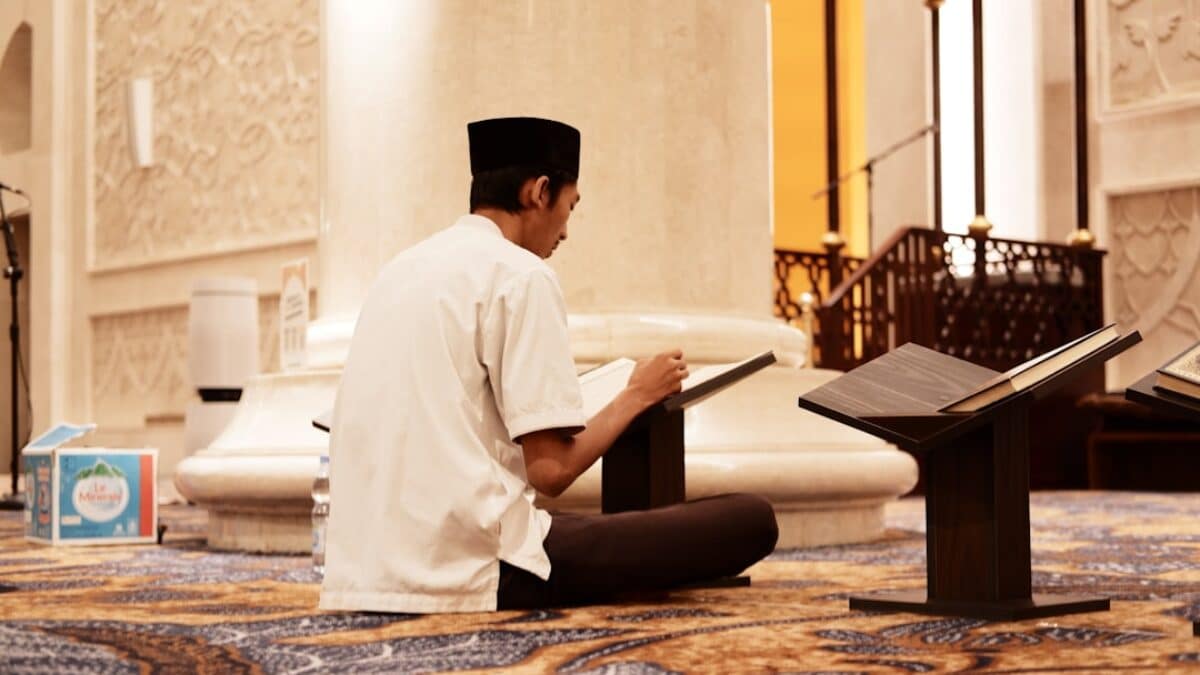Stepping into Islam is more than learning prayers and creeds; it is entering a culture whose very fabric is woven with adab—noble manners and refined etiquette. For new Muslims, the excitement of faith is often accompanied by a quiet worry: “Am I behaving correctly?” This guide removes the guess-work by unpacking the essential Islamic manners that every beginner should know. It is practical, rooted in Qur’an and Sunnah, and designed for real life in the 21st century.
Understanding Islamic Manners (Adab)
What Is Adab?
In Arabic, adab originally meant “invitation to a banquet,” implying refined hospitality. Over centuries it evolved into a comprehensive term covering politeness, morals, and etiquette. Imam ibn al-Qayyim summarized it as “putting every created thing in its rightful place with the rightful attitude.” For a Muslim, this means:
- Speaking gently to parents and to supermarket cashiers.
- Returning a dropped pen to its owner before they notice its absence.
- Leaving the mosque restroom cleaner than you found it—because the floor, too, deserves respect.
The Qur’anic Mandate
Allah commands, “Indeed Allah orders you to render trusts to their owners, and when you judge between people to judge with justice. Excellent is that which Allah instructs you.” (Qur’an 4:58). The word translated “excellent” is ahsan, a superlative of husn—beauty, goodness, and courtesy. Thus, polite etiquette is not optional; it is part of divine obedience.
How Adab Differs from Culture
| Islamic Adab | Cultural Norm | Key Difference |
|---|---|---|
| Greeting every Muslim with As-salamu ʿalaykum | Saying “Hi” or nodding | Intention: invoking peace and Allah’s blessings |
| Using right hand to eat and give | Using dominant hand | Rooted in prophetic hygiene and sunnah |
| Lowering gaze regardless of gender norms in host country | Maintaining eye contact to show confidence | Prioritizes modesty and inner purity |
Key Components of Muslim Etiquette
1. Greeting and Meeting People
The Prophet ﷺ said, “You will not enter Paradise until you believe, and you will not believe until you love one another. Shall I tell you of something which, if you do it, you will love one another? Spread salam among yourselves.”
The Salam Formula
- Initiate: Say As-salamu ʿalaykum wa rahmatullahi wa barakatuh whenever you enter a room.
- Respond: Answer with Wa ʿalaykum as-salam wa rahmatullahi wa barakatuh; omitting blessings is permissible but less complete.
- Smile: The Prophet’s face “was like a moon in its fullness.”
- Handshakes: Sunnah for same-gender encounters; slight bow of head suffices across genders.
Practical Example
At your first Friday prayer, arrive ten minutes early. Greet the person on your right, then the one on your left, using full salam. If someone is shy, they may answer softly; continue smiling and take your seat without pressing conversation. This simple act seeds lifelong friendships.
2. Visiting Homes and Sharing Meals
Seeking Permission
Allah says, “O you who believe! Enter not houses other than your own until you have sought permission and greeted their occupants.” (24:27). Knock thrice. If no answer, leave—this avoids embarrassment.
Gift-Giving Etiquette
- Bring something modest: dates, pastries, or scented soap.
- Hand it with right hand, saying, “A small gift for your family, may Allah bless you.”
- Never expect reciprocation; gifts are tabarruʿ (voluntary charity).
Table Manners Checklist
- Start with Bismillah; end with Alhamdulillah.
- Eat with right hand from the portion directly in front of you.
- If a bowl is shared, use the same spoon direction as others.
- Praise the cook: “May the hands that prepared this be in Allah’s protection.”
3. Speaking the Right Words
Praising Allah in Daily Speech
| Occasion | Arabic Phrase | Meaning & Usage |
|---|---|---|
| Good news | MashaAllah tabarakAllah | “What Allah willed; blessed is Allah.” Prevents evil eye. |
| Planning a trip | InshaAllah | “If Allah wills.” Respects divine decree. |
| Sneezing | Alhamdulillah | “All praise is due to Allah.” |
| Hearing bad news | Inna lillahi wa inna ilayhi rajiʿun | “To Allah we belong and to Him we return.” |
Avoiding Harmful Speech
Backbiting (ghibah) is likened to eating a dead brother’s flesh (Qur’an 49:12). If tempted to criticize, ask yourself: “Would I say this if the person were present?” If not, change the topic or remain silent.
4. Dress and Personal Presentation
Minimum Requirements for New Muslims
- Men: Cover from navel to knees; loose garments recommended.
- Women: Cover entire body except face and hands; clothing should not describe the body shape.
- Fragrance: Light, non-alcoholic attar for men before Friday prayer; women may wear it at home.
Color Psychology
While black and white dominate in many Muslim countries, the Prophet ﷺ wore saffron, green, and striped cloaks. Choose modest cuts over color anxiety, but note:
- Green: Symbolizes paradise; widely appreciated.
- Red accents: Permissible for men if not entirely red.
- Neon prints: Avoid in mosques to prevent distraction.
5. Digital Manners
Social Media Guidelines
- Verify before sharing: A single click can spread falsehood faster than a masjid can correct it.
- Protect dignity: Blur faces of sisters or children if posting congregational events.
- Timing your posts: Avoid live-streaming during prayer times.
Texting a Scholar
Begin with As-salamu ʿalaykum Shaykh, state your question concisely, and end with JazakAllahu khayran. Do not send voice notes longer than 60 seconds unless requested.
Benefits and Importance
Spiritual Rewards
The Prophet ﷺ said, “Nothing is heavier on the believer’s Scale on the Day of Judgement than good character.” Polite etiquette therefore doubles as worship, accumulating reward without extra ritual.
Community Cohesion
Mosques that train new Muslims in adab report:
- 30% fewer conflicts over parking spaces.
- 50% faster integration of converts into study circles.
- Increased volunteerism—people who feel respected reciprocate.
Daʿwah Impact
A Canadian sister, Sara, recounts: “I accepted Islam after my neighbor returned my trash bin every week with a smile and salaam. His manners were my first Qur’an.” Good etiquette, then, is silent preaching.
Practical Applications
Scenario 1: First Day at the Mosque
Challenge: You arrive early but the women’s section is locked.
Step-by-step solution:
- Approach the caretaker respectfully: As-salamu ʿalaykum, sister. Could you please open the door? JazakAllahu khayran.
- If the caretaker is busy, occupy yourself with dhikr instead of checking your phone aloud.
- Upon entering, thank her again and offer to help arrange shoes.
Scenario 2: Hosting Non-Muslim Family
Menu: Vegetarian pasta, fruit salad, and traditional baklava.
Dialogue tips:
- Begin with Bismillah audibly; explain, “We begin in the name of God to acknowledge His provision.”
- Answer questions succinctly: “We avoid pork and alcohol primarily as acts of obedience; it also has health benefits.”
- End with a gift pack of dates and a thank-you card saying, “Your visit was a mercy.”
Scenario 3: Workplace Prayer
Setup: You share an office with two colleagues.
Protocol:
- Inform HR in writing that you need a 5-10 minute break at specified times.
- Use an empty conference room; place a small “Prayer in progress” sign outside.
- Return promptly, thanking colleagues for their patience.
Frequently Asked Questions
What is the minimum Islamic greeting I should learn first?
Start with As-salamu ʿalaykum (peace be upon you). It is only three words yet carries the weight of 19 Arabic letters that invoke peace, mercy, and blessings. Practice it in front of a mirror to gain confidence. Once comfortable, extend it to the full As-salamu ʿalaykum wa rahmatullahi wa barakatuh during special occasions like Eid or when visiting elders.
Do I have to wear Arab-style clothing to be polite?
No. Islam emphasizes modesty and cleanliness, not ethnic costume. A Scottish revert in a tartan kilt that covers his knees can be fully compliant, as can a Nigerian sister in vibrant hijab. Focus on loose fit, opaque fabric, and avoidance of extravagant display. Local Islamic shops often stock culturally neutral options—plain maxi skirts, thobes, or shalwar kameez—that make adaptation easier.
How soon after converting
























Post Comment